Discover The Air Up There
The Air Up There

The Air Up There
Author: Federal Aviation Administration
Subscribed: 67Played: 1,105Subscribe
Share
Description
A podcast for people who are curious about the wide world of aviation. Join the FAA as we nerd out about the future of flight, drones, and ways to make the National Airspace System safer, smarter, and more efficient.
More Ways to Listen
To receive updates about new episodes, subscribe to our newsletter.
39 Episodes
Reverse
The average person probably has no idea what the FAA’s Technical Operations, or Tech Ops, employees do or what an adventure the profession can be. And by adventure, we mean wild beasts, volcanoes, and camping in the middle of nowhere!In the latest ‘The Air Up There’ podcast episode, “Adventures in Safety,” we talk about the extreme nature of Tech Ops and the great lengths our technicians go to maintain the airspace infrastructure so pilots can fly safely and air traffic controllers can communicate with pilots. Warning – the content in this episode may cause wide eyes, a fast heartbeat, and shock.
Listen in to hear stories from experienced technicians Jeremy Withrow and Charles Barclay, who have maintained flight navigation equipment in the unique – and extreme – environments of arctic Alaska, Hawaii and California desert. If you’re down for an adventure, you may develop a newfound interest in an exciting Tech Ops career. Nevertheless, you will walk away from this episode with a much higher appreciation for these unsung heroes!
If you’re #TeamAdventure and #TeamSafety, visit faa.gov/jobs to learn about the career and check out our job openings to see where you could be an asset to our national airspace system. And if you liked this episode, please share.
Anyone who has ever had a goal is probably familiar with the phrase, "the sky's the limit." Ironically, that logic can be quite limiting because, for some, the sky is just the beginning. Take Sirisha Bandla, for example. Once upon a time, Sirisha was on a rooftop, gazing at the stars and wondering what it would be like to explore what's out there. Then, in 2021, she joined Virgin Galactic's Unity 22 suborbital flight and became the second India-born woman to fly to space!Curiosities can turn into out-of-this-world realities with the right knowledge, focus, and determination. In our newest podcast episode, "It's Just Rocket Science," we give you all the proof.In this episode, we speak with Sirisha Bandla and JaciLynn Poteet, an FAA commercial space safety inspector and rocket scientist. They tell us about their career trajectories, what it took for them to get there, and what's important to them in their field of work. They also give listeners advice for pursuing their dreams.After this episode, you'll be ready to, literally, reach for the stars. Learn more about Commercial Human Spaceflight at faa.gov/space, and if you like this episode, please share!
What comes to mind when you think about air traffic control towers? Probably not how they can create opportunities for small businesses that make a positive impact in their communities. This episode of The Air Up There podcast examines how investments from The Bipartisan Infrastructure Law (BIL) keep flights moving safely, people employed, and small businesses thriving.In this episode, we chat with Jeff Babbitt, a disabled veteran and owner of TJ&B Air Conditioning and Electric. His company recently received a contract funded by the BIL to replace the heating and cooling (HVAC) equipment at FAA's air traffic control tower in San Antonio, Texas. So, what's the big deal about HVAC replacement? Because temperature matters, and when critical radar equipment gets too hot, it shuts down.So, the next time you think about air traffic control towers, remember that, in addition to supporting pilots, they also support the communities around them by creating opportunities for small businesses and the people they employ.
On this special Girls in Aviation Day episode, we meet two young aviators who share their love for the flying community and give advice about how others can get involved.Sahara is an instrument-rated pilot attending Embry-Riddle Aeronautical University. She's seen dramatic growth on campus since her first class a few years ago, when she was one of only two women in the lecture. And Mia is a high school glider pilot, who was raised in an aviation family.Both reflect on their journeys and the women who inspired, mentored and trained them. They're now able to pay it forward and create opportunities for other young women to follow their aviation dreams.Listen in and be inspired.
Imagine you're a passenger on a small plane and your pilot becomes unconscious. What would you do? That was the reality for Darren Harrison when the pilot on his plane went unconscious mid-flight on May 10. Darren had to quickly transition from a passenger to a pilot with absolutely no flying experience.Take a deep breath as we walk you through that exact experience we005ve dubbed "Miracle in the Air" in the latest episode of our podcast. It was a team effort to land the plane safely, and we caught up with some of the key players.Tune in to hear from Fort Pierce Tower air traffic controller Chip Flores and supervisor Justin Boyle, who took the initial emergency call from Harrison that day; as well as Palm Beach Air Traffic manager Ryan Warren, Palm Beach controller/Flight Instructor Robert Morgan, and Domestic Event Network manager Joe Heuser, each had a significant role throughout the ordeal.This episode highlights the very important role of an air traffic controller and related safety professionals. Without their experience and quick thinking, the miracle in the air could have ended differently.The FAA is seeking diverse applicants to take on the challenging and highly rewarding job of an air traffic controller. The nationwide entry level application window will be open June 24-27 for all eligible U.S. citizens. Share this podcast episode and career opportunity with those in your network.
Mental Health Awareness Month is almost over, but our care and concern for the emotional, psychological and social well-being of pilots continues. We receive so many comments on our social media platforms regarding pilots' concerns about mental health. We see you, and in the latest episode of our podcast, we clear the air about misconceptions around mental health and flying.The FAA continues to make improvements around policies, testing, treatments and approved medication for pilots. Tune in to hear from Dr. Susan Northrup, FAA's Federal Air Surgeon, and learn more about the transparent process pilots can expect during their individual health assessments. You'll also hear from Ellen Brinks, Air Line Pilots Association (ALPA) Aeromedical Chair, who leads ALPA's Pilot Support Program.It is imperative for pilots to understand that it is okay to ask for help. Seeking help puts them on the right path to getting better so they can continue their passion for flying in the safest way possible.Share this important episode with pilots in your network. In the words of Jerry Crawford, To most people, the sky is the limit. To those in aviation, the sky is home. We want to make sure pilots get the help they need and deserve so that they can always feel at home.
The FAA is accountable for how aerospace impacts our planet. We join businesses, other governments, and citizens on a mission to "Invest In Our Planet," the theme for Earth Day 2022. We will continue to take bold actions, be innovative in our approaches, and implement solutions equitably.Just last year, U.S. Transportation Secretary Pete Buttigieg released the U.S. Aviation Climate Action Plan, which aims to achieve net-zero greenhouse gas emissions from U.S. aviation by 2050. Transportation produces the most emissions, and FAA is committed to doing its part to build a cleaner, quieter and more sustainable aviation system.In this special Earth Day episode of our podcast, we're talking to experts about sustainable fuels, new technologies, noise reduction and operational efficiency. You'll hear from Jim Hileman, the FAA's Chief Scientific and Technical Officer for the Environment; Greg McDougall, CEO, Harbour Air, Vancouver; and Dave Atwood, Structures and Propulsion Branch Manager, FAA William J. Hughes Technical Center.Operation Invest In Our Planet is underway. Tune in to learn how we're doing our part.
It's Women's History Month and we're celebrating women in aviation! Before we glide into this episode, can we take a moment to celebrate the amazing women on the FAA podcast team who did all the groundwork to make this episode take flight? *round of applause*Speaking of gliding and taking flight, the women featured in this episode know all about that and were excited to share their experiences with us. We talked with Lorry Faber, FAA lead test pilot; Marissa and Aerial (how fitting) Colclasure, a mother-daughter glider team; and Shannetta Griffin and Winsome Lenfert, an engineer and a pilot who lead the FAA's Office of Airports.We celebrate the Bessie Colemans and Amelia Earharts of the world who paved the way in aviation today. This episode features stories of people who paved the way for women, and for everyone, in aviation tomorrow.Listen in and be inspired. Happy Women's History Month!
We've got the inside scoop for one of Alaska's most iconic events — the Iditarod Trail Sled Dog Race! The Iditarod race is celebrating 50 years, and FAA's podcast team jumped on the opportunity to join the celebration. The FAA is well connected with Iditarod officials who are passionate about all things aviation, and FAA is full of dog lovers, thus making the 50th Iditarod race the perfect topic for an epic episode of The Air Up There podcast.Are you wondering what the connection is between aviation and Iditarod? Tune in to this episode to find out! We're going behind the scenes with Iditarod Air Force Chief Pilot Ed Kornfield; Musher Richie Diehl, a pilot who has multiple top 10 finishes in the Iditarod; and our very own Mike Holey and Sam McQuillin, members of an FAA Flight Service team who keep flights safe before, during, and after the last team has finished the race in Nome, Alaska.The Iditarod temperatures are cold, but the topics about all things Iditarod in this episode are hot! Want to learn more after listening to this episode? Check out our blog post "Iditarod from the Air … Up There."
Our holiday wish — give flight attendants chocolate, not problems. In this episode, we provide tips on how to get to your destination safely and on time for the holidays. Maximize your travel experience and enjoy the magic of flight. Get the inside story on why it's so important to follow cabin crew instructions, how to deal with disruptive passengers, and how to prepare for flying with children, and more. Also, learn about what FAA is doing to prepare for major traffic changes during the holiday season and beyond.You'll hear from: Sara Nelson, the International President of the Association of Flight Attendants, and LaKisha Price, the Air Traffic Manager at FAA's Command Center.Remember, flight attendants are trained professionals who are on board for your safety. Thank them for their service with good behavior, kind words, and chocolate (as you'll hear in this episode)!To learn more about safe holiday travel, listen to our previous podcast episode, Travel Safe this Holiday Season.
The holiday season is upon us! Are your travel plans underway? Make sure safety is at the top of your itinerary. In this episode, we explore safety precautions you should take when you fly, as well as the dos and don'ts for packing your bags. If you're thinking about chartering an airplane, we'll help you learn the rules, regulations, and requirements so you can easily identify a safe air charter service. You'll hear from: Jay Sorah, an FAA Hazardous Materials Aviation Safety Specialist; Don Riley, an FAA Safety Inspector; and Ryan Waguespack, Senior Vice President of Aircraft Management and Air Charter Services for the National Air Transportation Association.To learn more, visit FAA's Safe Air Charter Operations and PackSafe for Passengers pages.
The use of drones for fighting wildfires is a "hot" topic, with more than 6 million acres of forest burned this year. When they are used by emergency responders they have proven to help suppress and contain massive blazes, and save lives on the ground and in the air.Drones have revolutionized wildland firefighting, and can come equipped with infrared cameras and ignition payloads for wildfire control. The FAA works with federal and state agencies to find ways to support firefighting efforts, including approving hundreds of emergency airspace authorizations to fly drones.Tune in as we discuss various drone initiatives and programs, and their role in redefining aviation operations for wildfires. You'll hear from Mike Sheldon, an air traffic security expert for FAA, Dirk Giles, the Forest Service's drone program manager, and Pete York, a CAL FIRE captain.Read our latest blog "Drones Revolutionize Wildland Firefighting." If you're interested in more stories on drones and public safety, check out our episode from Season 1 titled Drones for Good.
If you're interested in a career in aviation but not quite sure where you want to land, your future as an Aviation Safety Inspector (ASI) (PDF) might take flight after this episode!Today, we're learning all about ASIs and their critical role in maintaining safe skies. ASIs administer, investigate and enforce safety regulations and standards for the production, operation, maintenance and modification of all aircraft.You'll hear from: Patricia Mathes, the new national FAA Safety Team manager in the General Aviation and Commercial Division, and Shawn Toth, an ASI working in Anchorage, Alaska. Listen as they welcome you to the world of Aviation Safety Inspectors.For more information about aviation careers, visit our careers page. Or, if you're curious about other types of careers at FAA, visit our jobs page.
Climate change impacts the world we live in today as well as future generations. As with other transportation sectors, aviation plays a role in sustainability. The Federal Aviation Administration (FAA) is rolling out Phase III of its Continuous Lower Energy Emissions and Noise (CLEEN) Program, working with stakeholders to decrease aviation's effects on climate change. Among other things, Phase III of the CLEEN Program introduces new environmental goals, including reducing noise and carbon dioxide (CO2) emissions.Tune in to this podcast episode where we sit down with Kevin Welsh, FAA's Executive Director of the Office of Environment & Energy, and David Hyde, former Director of Environmental Policy at the Aerospace Industries Association, to discuss what CLEEN is, what success looks like, and what is exciting about this new phase.
Welcome to our third installment of the summer career series! In this episode, we're learning about pilots, and the work they do to maintain safety while flying. Pilots can be found in a variety of different locations and roles: flight decks, at controls, transporting passengers and cargo, or even flying drones. Interested? Aviation might be the career for you! You'll hear from: Jacqueline Camacho Ruiz, the author of Latinas in Aviation; Dawne Barrett, the leader of the operations supervisor workshop for FAA; and Captain Jill Mills, the Assistant Chief Pilot of United Airlines.For more information about aviation careers, visit our careers page. Or, if you're curious about other types of careers at FAA, visit our jobs page.
Have you ever wanted to start a career in aviation? Well, becoming an aviation technician might be the right path for you! In this week's episode, we're exploring what it means to be a technician for FAA and in the aviation industry.Technicians have the skills and hands-on training to maintain and repair a wide array of equipment and technology that pilots and controllers rely on for navigation and communication, flight-tracking technology, runway lights and much more. The skills of a technician are absolutely necessary to ensure that all air travelers arrive at their destinations safely and on time.You'll hear from FAA's Cody Johnson, a district facilities group manager for Technical Operations; Jim Woodruff, who is working to ensure technicians have the proper training; and Krista Jeppsen, who oversees 14 technicians at King Salmon System Support Center in Alaska. Learn more about Airway Transportation Systems Specialists.
Welcome to the first installment of our summer career series! We're answering your questions and doing a deep dive into careers in aerospace and the steps you can take to get started in the field. Today's episode is one of our most requested topics — how to become an air traffic controller as an entry-level applicant. FAA experts will walk you through everything from the application process to training at the FAA Academy and certification.For more information about air traffic control jobs at FAA, visit our careers page. Or, if you're curious about other types of careers at FAA, visit our jobs page.
Aviation is for everyone, and the Drone Advisory Committee (DAC) is working to ensure that everyone feels included. During the DAC's last meeting, FAA requested that they explore a potential language change. For example, the technical term for drones is unmanned aircraft systems, or UAS. Unmanned. Now the committee is looking at ways to make that terminology gender-inclusive, because really, so long as a person is flying safely and following the rules, it doesn't matter what their gender is.In this episode, we're exploring what an equitable aerospace industry looks like. You'll hear from FAA Deputy Administrator Brad Mims, the FAA's Vice President for System Operations Services Ginny Boyle, and Alina George from the FAA's drone office.You can learn more about the DAC's use of inclusive language in our latest blog post.
On a flight back to his home airport in a Cherokee 140, pilot Truman O'Brien ran into engine trouble. FAA air traffic controllers at the Portland, Oregon TRACON were in close communication with the pilot, offering him multiple landing options and working hard to help guide him to safety. But, flying at 8,000 feet, the aircraft lost altitude quickly. Even with top-notch air traffic control services, O'Brien had no choice but to make an emergency landing in the trees, deep in the forest of southwest Washington.In this episode, we hear from the people on both ends of the transmission — Krissy Lewandowski, Portland TRACON Controller; Patrick Elmore, Portland TRACON Operations Supervisor; and the pilot himself. It's a story that underscores why clear pilot-controller communication is so critical.The FAA's WINGS program has resources to help general aviation pilots stay proficient and enjoy stress-free flying. You can learn more about WINGS at faasafety.gov/wings.
In Season 2, Episode 11, we spoke with FAA drone expert Danielle Corbett to gain a better understanding of how drone pilots can fly safely and in line with FAA rules. That episode is packed with lots of information that will help you to be a great drone pilot!In today's episode, we're talking about drone entrepreneurship. Drones can be used for a variety of business purposes, like photography, to survey agriculture, to conduct building inspections and a variety of other important functions. You'll hear first-hand from a drone entrepreneur, Eno Umoh, co-founder of the Global Air Drone Academy, an organization working hard to help young people realize the entrepreneurial benefits of drone piloting. Eno gives us insight into the endless possibilities in the drone world, and why it is so important that we're teaching future generation of drone pilots how to fly safely as they consider those opportunities.Want to know more about drone piloting, but don't know who to ask? Feel free to contact the UAS Support Center, where they'll answer all of your burning drone questions. The FAA has countless resources, as well as drone specific social media accounts for the drone community on Facebook and Twitter.Bonus tip: The FAA recently implemented two new rules, Operations Over People and Part 107.Disclaimer: Reference in this podcast to any specific commercial products, process, service, manufacturer, company, or trademark does not constitute endorsement or recommendation by the U.S. government, DOT, or FAA. As an agency of the U.S. government, the FAA cannot endorse or appear to endorse any specific product or service.






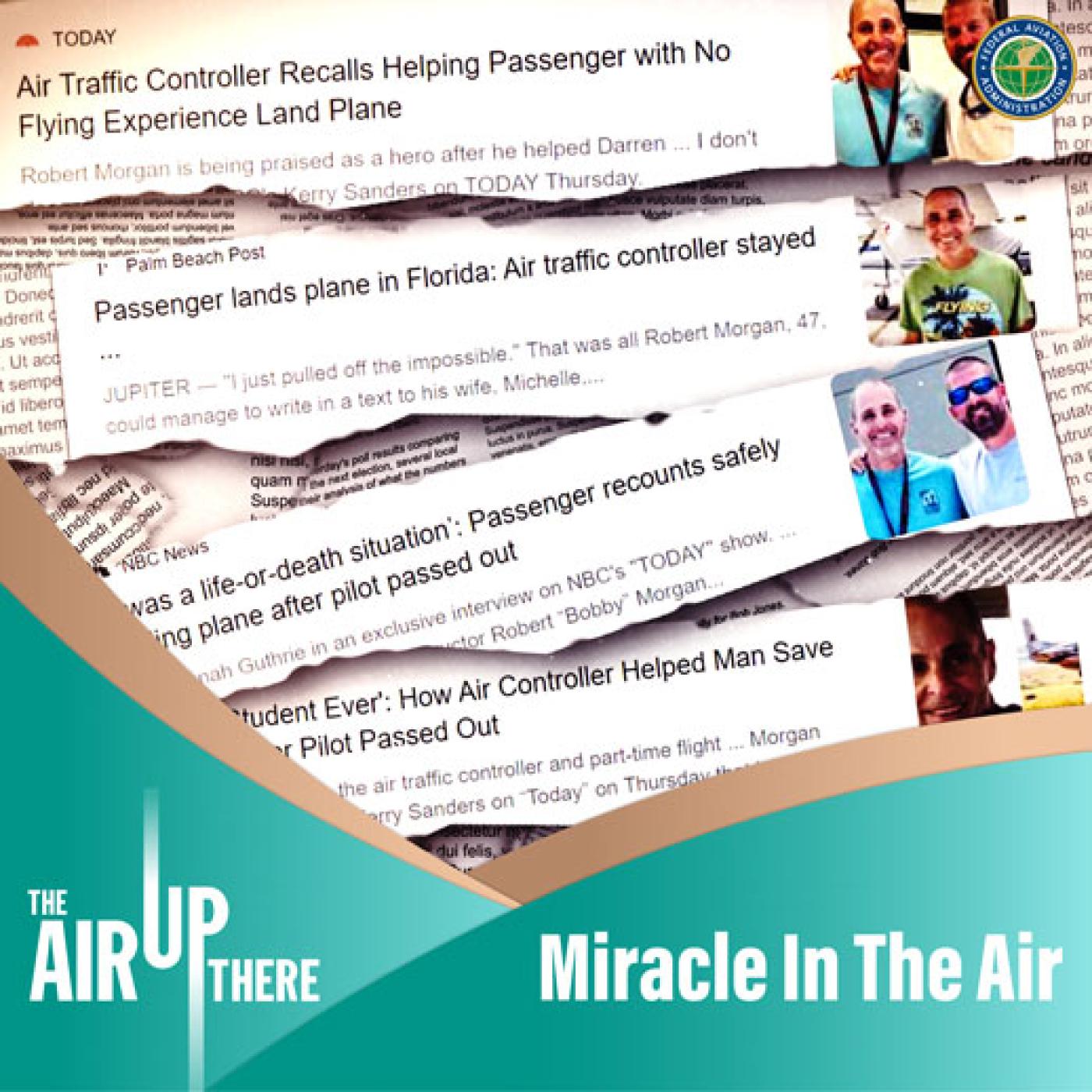



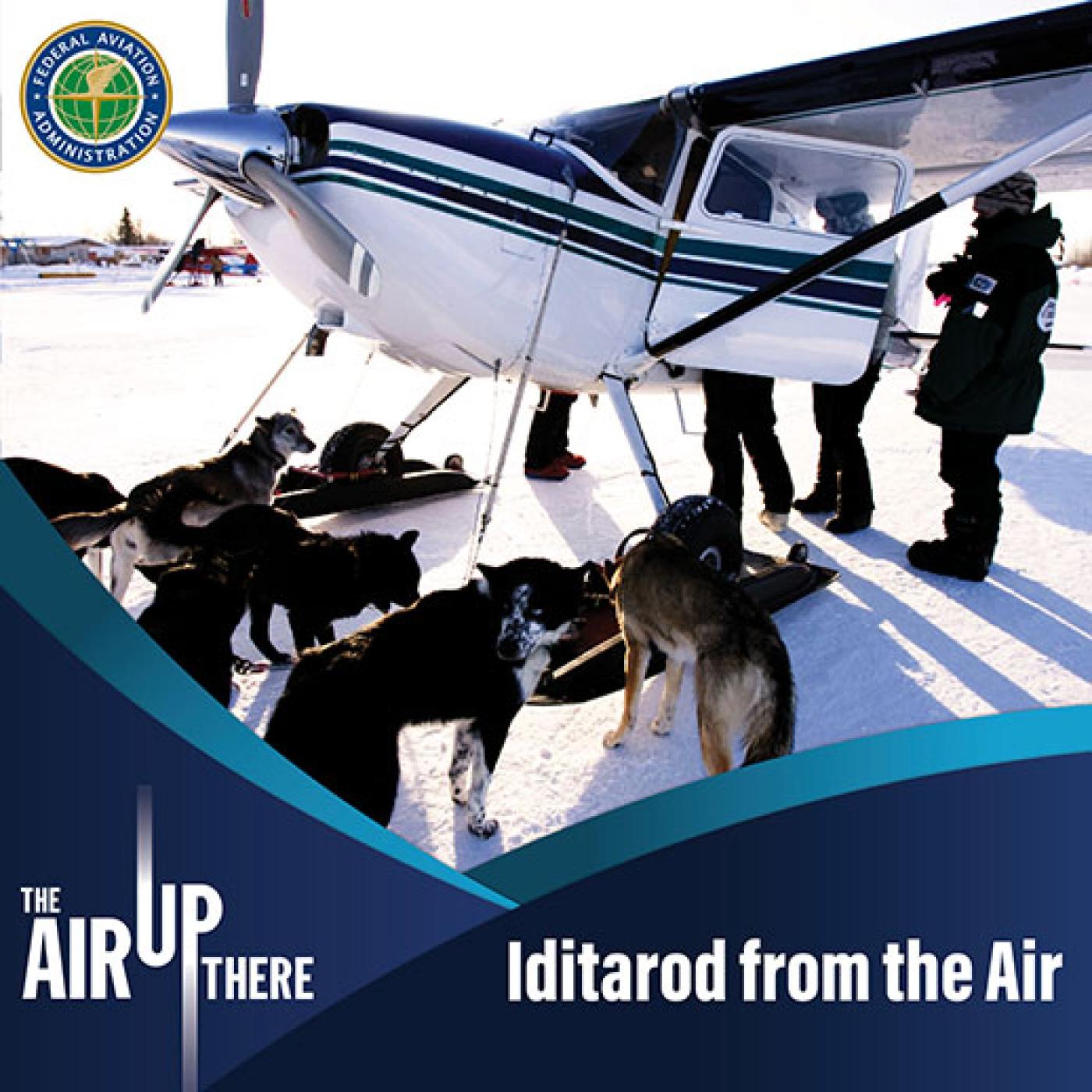
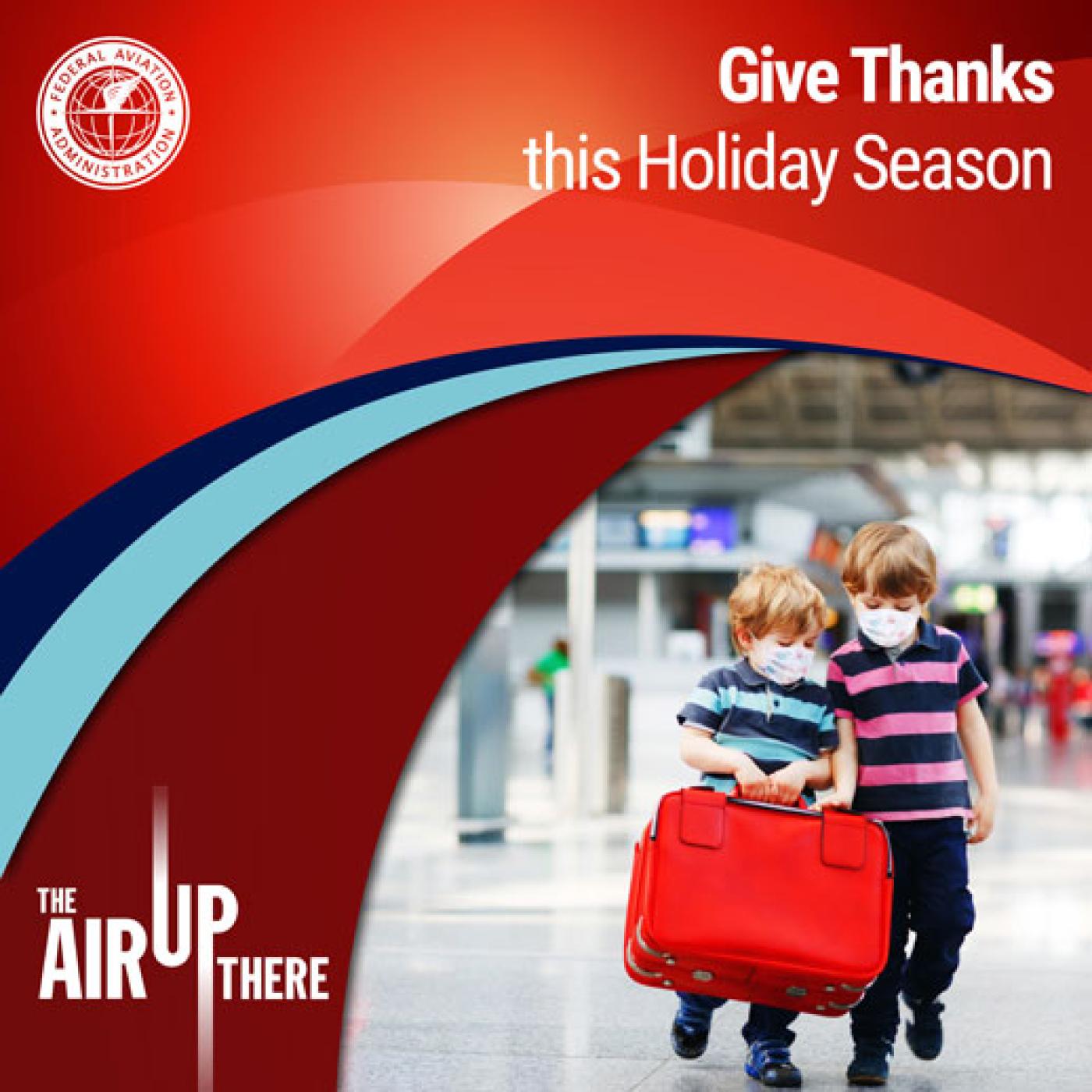

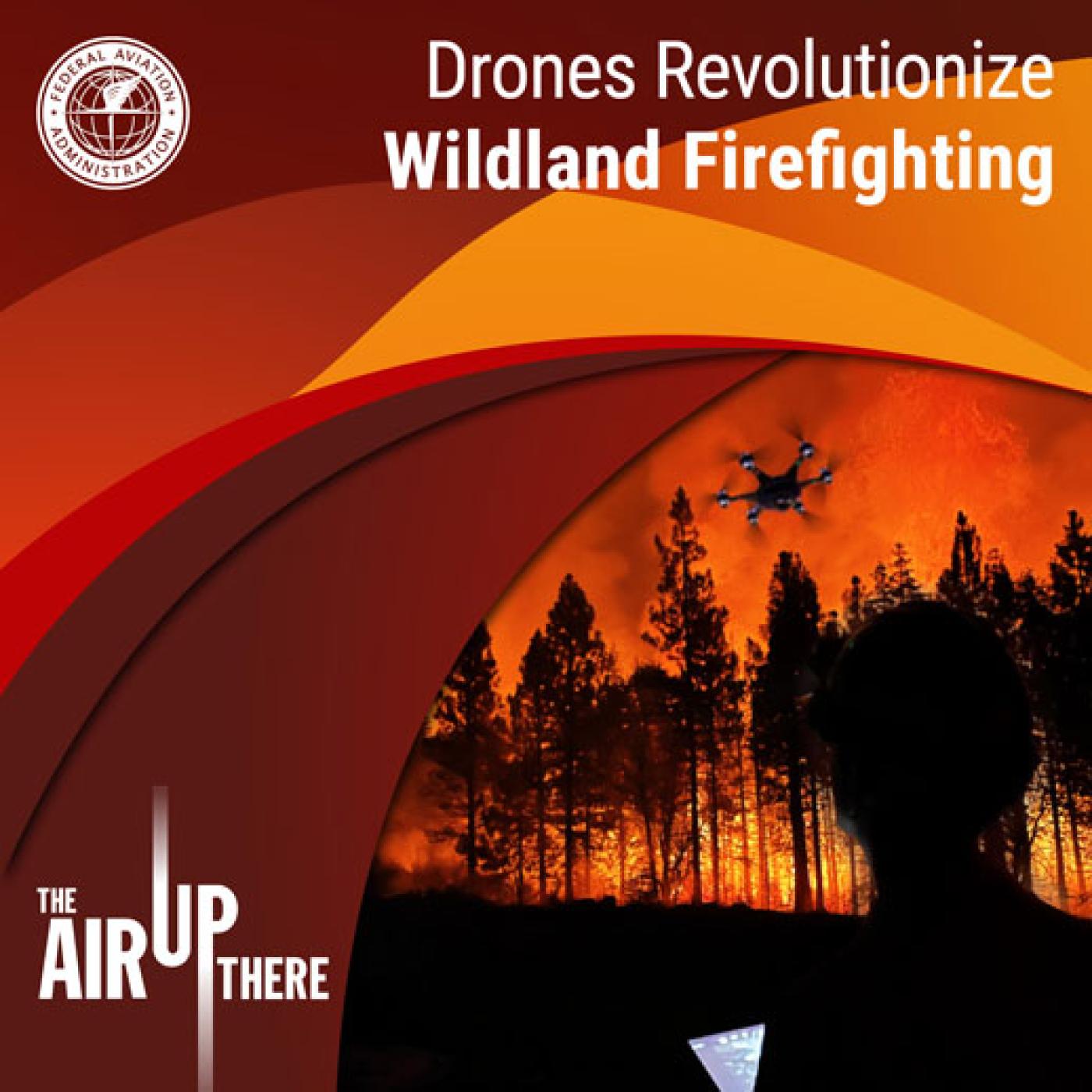







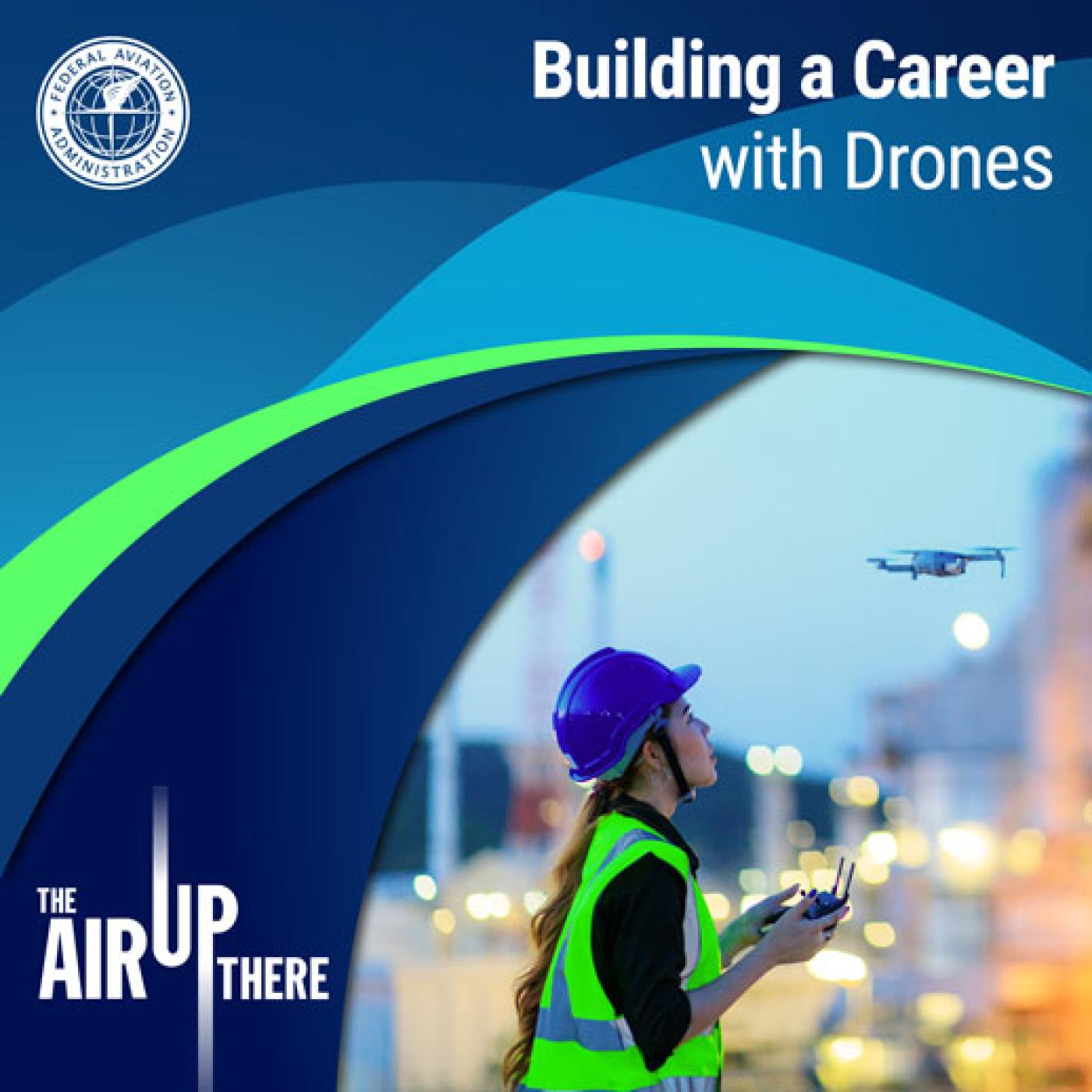



Good podcast until feed stopped working. There are 15 2023 episodes in Apple Podcasts.
very informative. Excellent podcast. You need to advertise more so more people understand what goes on while you fly.